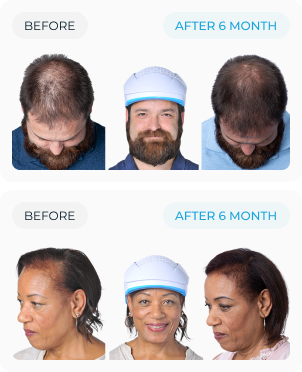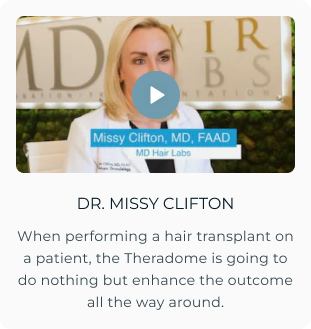Scalp eczema doesn’t just flake — it inflames, itches, and nags. One minute you’re scratching an “annoying little patch,” and the next? There’s more hair in the brush than on your head.
So, can eczema cause hair loss?
Not directly — but let’s just say your follicles don’t thrive in a cycle of swelling, redness, and constant microtrauma. Repeated scratching, inflammation, and a compromised scalp barrier all tag-team your strands into retreat.
This blog discusses the science behind eczema hair loss, how to stop it, and what actually helps when your scalp’s throwing a tantrum.
What is Scalp Eczema?
Scalp eczema is a chronic inflammatory skin condition that messes with your scalp, making it red, itchy, and flaky. Unlike a regular dry scalp or dandruff situation, eczema throws in immune dysfunction, skin barrier breakdown, and inflammation that doesn’t go off easily. The most common types seen on the scalp are seborrheic dermatitis (which loves oily skin) and atopic dermatitis (often tied to allergies or genetics). Both can lead to persistent flare-ups, discomfort, and, if unmanaged, chaos for your hair follicles.
What makes scalp eczema especially annoying is how it compromises the actual environment where your hair grows. When the skin’s natural barrier is weak, it gets hypersensitive — to shampoos, weather, stress, you name it. The constant inflammation messes with your scalp’s ability to nourish and protect follicles, laying the groundwork for potential damage. You don’t need full-on bald patches for this to be a problem. Eczema-related hair shedding usually creeps in slowly, hiding under flakes until the shedding gets harder to ignore.
Can Scalp Eczema Cause Hair Loss?
Let’s get clinical: No, eczema doesn’t directly kill hair follicles. But chronic inflammation is a different story. Persistent scalp inflammation means your follicles are constantly dealing with reduced blood flow and disrupted sebum balance. And if you're scratching like your scalp owes you money, you're not just irritating the skin — you're mechanically damaging hair shafts. Over time, all that friction leads to noticeable breakage and what’s often misread as “random thinning.”
So yes, eczema on scalp hair loss is a real thing. But it’s not scarring or permanent unless you're dealing with something far more aggressive. In most cases, the hair loss is temporary — a response to an environment that’s been made hostile by inflammation, scratching, or topical irritants.
Does eczema cause hair loss?
Not directly. But can eczema cause hair thinning and excessive shedding? Absolutely. And ignoring it only makes it worse.
Symptoms of Scalp Eczema-Related Hair Loss
- Itchy, inflamed scalp
- Flaky patches or yellowish scales
-
Burning or stinging sensation
- Increased hair shedding during flare-ups
- Fragile, brittle hair around irritated zones
- Receding or thinning edges over time
- Raw, red skin from excessive scratching
How to Treat Scalp Eczema and Prevent Hair Loss
Topical Treatments
If you're playing product roulette with random shampoos, stop. Effectively treating eczema on the scalp starts with active ingredients, not gimmicks. Shampoos with ketoconazole, salicylic acid, or zinc pyrithione reduce inflammation and fungal overgrowth without nuking your scalp’s barrier. Use them 2–3 times per week max. Daily washing or over-cleansing strips essential oils, making things worse. Rotate in a gentle, pH-balanced shampoo in between. The goal is to reduce flare-ups while keeping the skin barrier intact, not wage chemical war.
Lifestyle and Home Remedies
Natural options aren’t useless when chosen wisely. Tea tree oil (in diluted form) can reduce inflammation and fungal activity. Aloe vera calms down flare-ups. Apple cider vinegar helps rebalance scalp pH — but only if used sparingly. The trick is moderation: DIY overload or kitchen-sink remedies often backfire. If your skin’s already flaring, throwing a dozen oils on it won’t help. Go light, patch test everything, and pay attention to how your scalp responds.
Dietary Consideration
If your scalp acts up every time you binge on processed foods or dairy, it’s not a coincidence. Certain food sensitivities — like gluten, sugar, or artificial additives — can amplify systemic inflammation. Add to that vitamin D, omega-3s, and zinc deficiencies, and you’ve got a recipe for eczema-related hair shedding. A clean, anti-inflammatory diet won’t cure eczema, but it can significantly reduce flare-up frequency and intensity. Track your triggers and start feeding your scalp from the inside out.
Managing Hair Loss Due to Scalp Eczema
Stress Reduction
Stress turns your immune system into a messy overachiever. And when that happens, your eczema flares and your follicles suffer. Cortisol — the hormone you never asked for — increases inflammation and slows down healing. Meditation, walking, breathwork, and even therapy are inflammation management. Taming your stress response helps reduce both flare-ups and fallout. And yes, it also helps your hair hold on for dear life.
Protective Hairstyles
If your scalp’s already inflamed, pulling it into tight buns or ponytails is like pouring salt on an open wound. Skip styles that stress the hairline or create tension points. Go for low-manipulation styles, loose braids, or air-dried wash days. Also, avoid aggressive detangling when your scalp is flaring. You’re not just protecting strands — you’re protecting the skin that’s literally trying to heal underneath.
Laser Phototherapy
Once the inflammation is under control, laser phototherapy can help kickstart recovery. Hair growth devices like the Theradome use light at clinically proven wavelengths to increase blood flow, reduce inflammation, and reactivate sleepy follicles. It’s drug-free, painless, and especially helpful when your follicles need a non-invasive push. For people dealing with chronic seborrheic dermatitis hair loss or eczema-thinned edges, LPT provides a solid, science-backed recovery boost — without adding fuel to the flare-up fire.
Conclusion
So, can eczema cause hair loss?
Not in isolation — but with chronic inflammation, scratching, poor scalp care, and stress? It absolutely can. The good news is you can manage it. Treat the root (inflammation), support the scalp barrier, and avoid the common traps (over-cleansing, tight hairstyles, untested products). With the right treatment plan, most eczema hair loss is reversible — and your follicles live to fight another day.

























